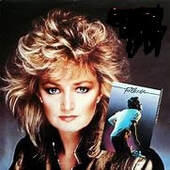
According to Bonnie Tyler, a hero is defined as a good man who is strong, fast, sure, fresh from the fight and rising with heat; a god, a street-wise Hercules, a Superman who will sweep her off her feet; a white knight on a fiery steed racing on the thunder and larger than life. “Holding Out For A Hero”, by songwriters Dean Pitchford and Jim Steinman
And Bonnie is not going to settle for anything less! What about the heroines in our romance novels? Should they have to settle for the average Joe with a Ford pickup rather than a fiery steed? Pride and Prejudice
By Jane Austen
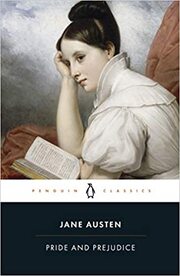
The "Romance Hero" first began appearing in literature during the Romantic period, in works by such authors as Byron, Keats, Pushkin, Goethe and is seen, in part, as a response to the French Revolution. The novels from the Romantic era literature featured a different sort of hero than romance novel favor today; referred to a Byronic hero who:
● Rejects All Kinds of Authority in favor of his own rules for morality and personal behavior. In other words, he refuses to be cast in someone else’s mold. He creates his own moral code which, as it must, turns out to be for the better.
● Is Highly Introspective and Seeks Self-Knowledge which, combined with rejection of the social norms, leads to a feeling of disconnection with others. This could lead to cynicism and bitterness, but doesn’t have to result in distain for others.
● Has Feelings Of Wanderlust driven by the need for self-discovery, and often leaves home to find himself.
● Is Haunted by the Past, some secret, tragedy, disappointment, betrayal, forbidden love which haunts the hero and deepens his feelings of rejection and isolation.
Golden Fire
By Kathy Jones
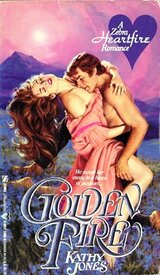
Forbidden love featuring a brooding and arrogant alpha male vs. feisty and rebellious virgin. He is drop dead handsome and bossy, she is gorgeous, and there is plenty of rolling in the hay. Bodice Rippers always involve a plot with seduction of the heroine.
Bodice Ripper is a derogatory reference to a type of romance novel, usually historical, which starred a testosterone-fueled hunk whose intent was to have his way with the innocent heroine and often included violent sexual content.
Alpha male characteristics, many of which are not necessarily undesirable by themselves include:
● Dominant ● Fast decision maker
● Goal Driven ● Rarely admit their mistakes
● Intelligent ● Doesn’t allow others to interfere in his life
● Usually unemotional ● Not affected by criticism
● Controlling ● Has great intuitive sense
● Fearless ● A leader
● Successful ● Can be charming
In the Bodice Ripper, however, many of the characteristics above are combined with the less attractive ones below:
● Lustful / sexual prowess ● selfish and self centered
● Arrogance ● Ruthless
● Ill-mannered ● Rippling muscles
● Prideful ● Disrespectful of women and others
● Disrespectful of authority ● Overbearing
● Merciless ● Nasty temper
● Tall, dark, and roguishly handsome and doesn’t hesitate to use that to get what he wants
These heroes must have had some redeeming qualities also ‒ there has to be something that brings the heroine around to liking him ‒ but his stereotype traits rarely change throughout the story. Maybe the heroine just learns to love him despite his being a piece of work.
Bodice Rippers contributed to all romance novels being looked down by other mainstream authors as not-real-writing and gave a bad rap to both romance novels and historical. Published widely in the 1970s and 1980s, these works of fiction preceded the era of modern romance literature and women’s fiction
Even in 2021 there are those who pooh-pooh the romance genres as being “lowbrow literature for middle-aged women," despite the fact that romance literature captures nearly 30% of the fiction market and generates the highest revenue of all fiction, approximately $1.44 billion per year. Ruby-Fruit Jungle
By Rita Mae Brown
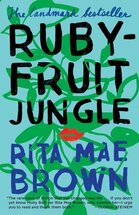
Wherever this phrase came from, it’s appropriate to modify the language to set it back a generation. Today, it’s your Grandma who is authoring many of those up to date and more explicit romances including erotica, erotic romance, fantasy, science fiction, time travel, shape shifter, contemporary and historical.
The romance novel has come a long way and now features very different heroes and heroines, including those with the challenges of physical handicaps, unusual professions, mixed-race and same-gender relationships.
Most modern romance authors would probably say their aim is to create a strong heroine that the readers can identify and a hero, whom the readers can lust after, who is worthy of the heroine and having his happily-ever-after. Not an easy task, and not all readers will respond in the same way to the characters. That is why there is such a variety of character types, relationships, and subgenres to choose from.
WHAT ROMANCE AUTHORS SAY ABOUT THE ROMANTIC HERO
1. almostanauthor.com/
The heroine and the reader must both fall in love with the hero. He should be strong, but not overbearing, not abusive, vulnerable enough to need the heroine as well as being intelligent, capable, fascinating, and good looking.
2. Maggie Boyd ‒ allaboutromance.com/the-ideal-romantic-hero
● Laughing eyes, sunny nature, sense of humor
● Sense of chivalry
● Cheerful personality (you just can’t be miserable around him)
● A good listener, particularly with the heroine
● Willing to risk himself for the heroine
● Honorable
● Loyal
● Sense of duty
● Complex
● Grows and changes in the story
● A decent human being
● A good lover, physically and emotionally
● Accepts the heroine for who she is
● Treats the heroine well, like a partner
● Kind to children, th4e elderly, and animals
● A self-made man (not in to money, but character)
● Has faults and flaws but he ultimately redeems himself
● Has a softer side
● Deserves his happy ending
3. Zara West - zarawestsuspense.com/characteristics-romance-hero/
● Deserving: Every hero needs to deserve our empathy and to have the readers root for him.
● Believable: The hero’s thoughts, actions, and reactions must make sense; what he says must make sense in terms of why he says it.
● Mysterious: He has something hidden in his background which drives his actions goals, and explains them when revealed.
● Unique: He has something different from every other hero ‒ a skill, occupation, quirk, talent, physical feature ‒ that makes him stand out.
● Ability to love: He may start out rejecting the notion of love, but has the capacity to commit heart and soul to another person.
● Brave: A true hero takes action to protect what he loves and believes in even if he is terrified or it risks his life, property, or future happiness.
● A Dream or Goal: Like all characters, he has to have a goal; he hs to want something. The original goal may unworthy, byt goals change as the character grows.
● An Obstacle or Enemy: As in any novel, there has to be something that comes between him and his goal, and it can’t be an easy resolution. Conflict!
● Flaws: No human is perfect, especially romance heroes. They may be handsome and likable and brave, but they also have to be real people.
● Ability to Grow and Change: It is not just enough for the hero to know his goal is a mistake or that he has flaws or he’s defected the enemy. He must use that knowledge to change into a better man, a man more worthy of love, than he was at the beginning of the story.
4. Sara Humphreys ‒ freshfiction.com/romance-heroes
● Protective instincts: A true hero who will do anything and everything to protect the people he cares about.
● Loyalty: He must be loyal in general and sees no other woman but the one he loves.
● Generous lover: A romance hero who isn’t generous in the bedroom is not going to gain the reader’s sympathy. He has tgo be attentive.
● A sense of humor: If a man can’t make his woman laugh, he’s going to find it hard to get out of a lover’s spat gracefully. Laughter is a potent aphrodisiac.
5. Anne Marble ‒ writing-world.com/romance/heroes.shtml
Most women read romance novels because they want to read about the hero.
●There are many types of heroes: Some are leaders, others are poets, many are rakes or bad boys. The important thing is your reader be able to relate to him.
● Heroes have flaws: The author can start with the most despicable hero ever, but he must redeem himself and the transformation has to be believable. It’s best not to make too flawed, and make the flaws fit the storyline.
● Don’t let his flaws overwhelm the story: The flaws should not overwhelm what is heroic about the hero. Romance heroes are good men even with the flaws.
● The hero’s background should dictate his flaws: A great trick of characterization is to have the positive traits complement the flaws
● The hero must be devoted to the heroine: How and where the heros shows his devotion depends on the type o hero and the needs of the story. A rough-around-the-edges hero most likely will not show his devotion be dedicating a book of poetry to her, although it would be a wonderful twist if he did.
● The heroine must not be TSTL: Too stupid to live.
● Always consider the hero and the heroine together: Although they are separate people and must be individuals, the hero and the heroine are two part of one relationship.It is almost always necessary for the relationship to become threatened, sometimes by external forces they have no control over that drives the lovers apart. More often than not, it is the hero or heroine or both, who threaten the relationship ‒ and they are the only ones who can put it back together.
● The hero and heroine must have goals: It can be the same goal but different approaches or opposite goals that have driven them apart. There must be conflict in trying to achieve the goals.
● Don’t treat your characters like puppets: Sometimes, your characters may refuse to act as they “should.” When your characters act willfully, it may mean you’ve put them in the wrong story or they have reason to be acting differently. They can, and will, take over your story if they have been created to replicate real people.
WHAT PSYCHOLOGISTS SAY ABOUT HEROIC CHARACTERISTICS
Since there is no “hero” gene that science knows of, what makes a real life hero? No one invented by an author.
In 2010, a scientific paper was published about the characteristics of real life heroes. The findings concluded that a one-time hero, who rushes (once) into a burning building and carries someone to safety, doesn’t have traits that are different from the non-hero control group.
“By contract, people who engage in lifelong heroism, such as professional nurses who regularly comfort the sick and dying, do share a number of important personality traits such as empathy, nurturance, and a needs to live by a moral code.” They perform such actions without any expectation of reward or external gain and with the recognition and acceptance of service to others who are in need. Kendra Cherry, verywellmind.com/kendra-cherry-2794702
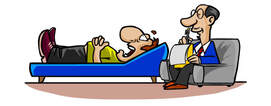
● Bravery ● Conviction ● Courage
● Determination ● Helpfulness ● Honesty
● Inspiration ● Moral integrity ● Protectiveness
● Self-sacrifice ● Selflessness ● Strength
Romance authors can’t go wrong using these traits as a guide for their heroes, along with some of those elements necessary to write good fiction.
TAKE AWAYS
The hero has to be a decent human being at his core, no matter what his background and experience have made him. Ultimately he must grow and change and redeem himself and become worthy of a modern heroine who is usually strong and independent.
Of course, the writer should know the market and write the hero ‒ and all the characters ‒ to resonate with those likely to read the book. The reader doesn’t have to like the hero at first, but he must be intriguing and unique enough for the reader to want to find out what happens.
No single hero will have all the good ‒ or bad ‒ qualities listed. The author needs to put some advance thought into what and who the hero is and utilize those traits that will result in the hero’s attitudes and behaviors.
Looks shouldn’t make a difference to the novel unless it is integral to the storyline. Even then, handle with care.
The hero should have a strong personality but has fixable flaws and is vulnerable in some way, He should have a sense of humor, be intelligent and self-aware. He has internal conflict.
But tell me, why do none of these lists include “integrity” as an important characteristics? The scientists got it but not the romance authors.
JUST SAY’IN
■
SOURCES:
https://www.almostanauthor.com/crafting-hero-part/
https://classroom.synonym.com/qualities-romantic-hero-8738561.html
https://www.zarawestsuspense.com/10-characteristics-great-romance-hero/
https://www.mvorganizing.org/what-are-the-qualities-of-a-romantic-hero/
https://libertabooks.com/craft/romantic-hero-qualities/
https://www.enotes.com/homework-help/what-characteristics-romantic-hero-389399
https://www.cram.com/essay/Romantic-Hero-Characteristics/FJCC4GN946T
https://liveboldandbloom.com/11/personality-types/characteristics-of-hero
https://allaboutromance.com/the-ideal-romantic-hero/
https://seducedbyhistory.blogspot.com/2010/06/bad-boys-bad-boys.html
https://www.zarawestsuspense.com/10-characteristics-great-romance-hero/
https://www.writing-world.com/romance/heroes.shtml
https://freshfiction.com/page.php?id=4975
https://www.verywellmind.com/kendra-cherry-2794702
https://themindfool.com/alpha-vs-beta-vs-gamma-vs-omega-vs-delta-vs-sigma-personality/
https://writeromancenovelsthatsell.com/
https://romancetheguyspov.blogspot.com/
https://www.goodreads.com/genres/bodice-ripper
https://www.bustle.com/articles/115631-13-romance-novels-that-should-be-on-every-womans-bucket-list
https://en.wikipedia.org/wiki/Romantic_hero#:~:text=The%20Romantic%20hero%20is%20a%20literary%20archetype%20referring,on%20the%20character%27s%20thoughts%20rather%20than%20their%20actions.
 RSS Feed
RSS Feed